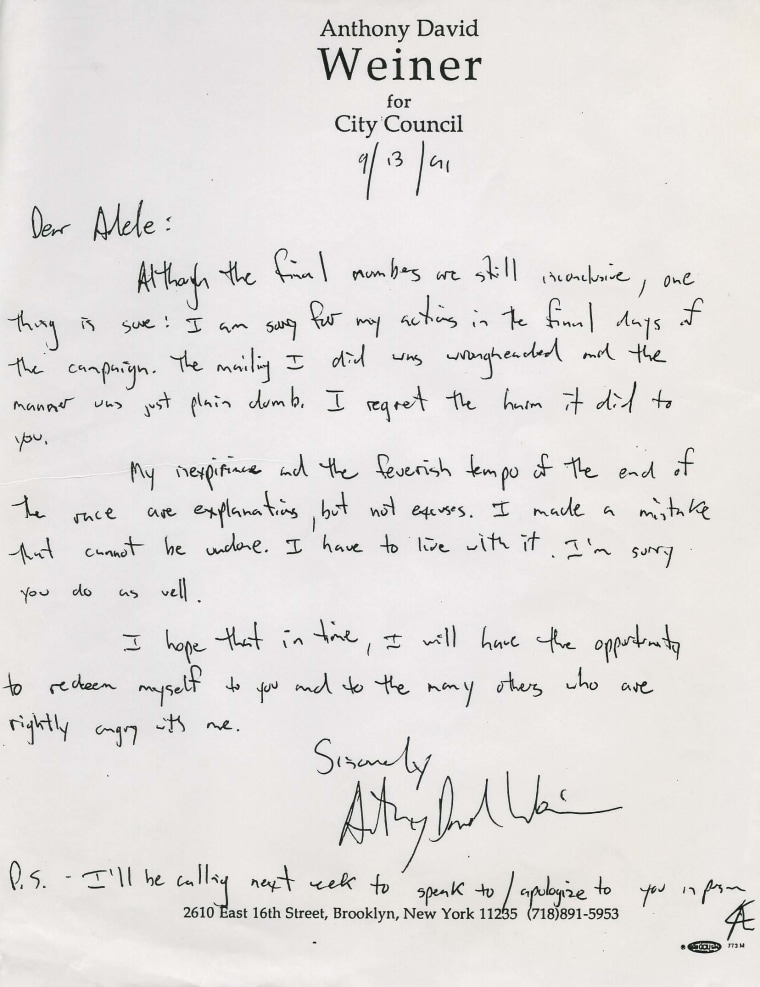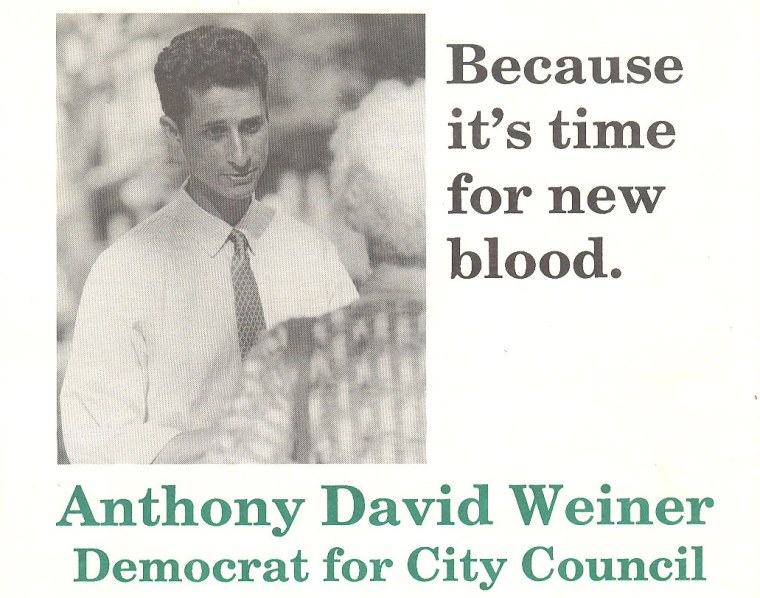New York City mayoral candidate Anthony Weiner's downfall from Congress was not the first instance of controversy to mar the Democrat's political career as copies of campaign documents obtained by Up with Steve Kornacki reveal Weiner's questionable tactics in his ascent into local politics almost 22 years ago.
On August 19, 1991, a station wagon driven by a Hasidic Jewish man careened onto a sidewalk and killed a black child in the Crown Heights neighborhood of Brooklyn, igniting a powder keg of racial tensions and setting off three days of violent riots that gripped the city.
A few neighborhoods away, a 27-year-old Anthony Weiner was running in a tight primary race for New York City Council. In the waning days of the campaign, an anonymous piece of literature arrived in mailboxes around the district. It attacked two candidates: Mike Garson and Weiner’s main opponent, Adele Cohen.
As shown above, the mailer did not say who paid for or authorized it, which was legal in city elections at the time. But anonymously claiming that Cohen would “owe [her victory] to the Dinkins/Jackson coalition” in what the New York Times described as “a heavily Jewish district” just three weeks after the riots was called one of the dirtiest tricks in city politics that year. Even Weiner recognized he was at fault, as he wrote to Cohen the day after the primary.
When the New York Times asked Weiner why the mailer was anonymous, Weiner replied, “We didn’t want the source to be confused with the message.” Weiner had actually won the Times’ editorial board’s endorsement in the race for what they called “Mr. Weiner’s sensible politics and grasp of key issues.” Yet they issued this scathing editorial on Sept. 15:
“In a coarse appeal to racial fears in his mostly white district, Mr. Weiner distributed an anonymous flier that unfairly described an opponent, Adele Cohen, as the captive of an allegedly sinister David Dinkins-Jesses Jackson “agenda.” Mr. Weiner’s hit-and-run tactics tarnish his come-from-behind campaign, and point to a gap in the state election law. Federal campaign rules require that campaign literature disclose its source. New York voters deserve the same sound rule.”
Weiner won the election by a handful of votes.

